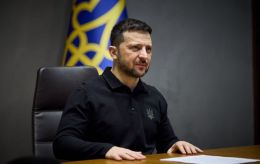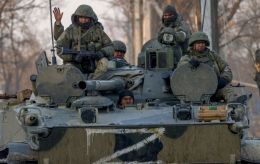One year since Hamas attack: How Israel wages war against terrorists and what's to come
 Israeli soldier and Israeli flag (photo: Getty Images)
Israeli soldier and Israeli flag (photo: Getty Images)
One year ago, on October 7, 2023, the terrorist group Hamas launched a massive attack on Israel. More on what consequences this caused for Israel, Hamas, and the entire Middle East in the RBC-Ukraine report below.
Contents
- Responsibility for failure postponed
- Gaza operation and 'maneuvering between the raindrops'
- Seizing initiative
- Tactics or strategy
- Israel’s strengths and weaknesses
On October 7 last year, Hamas carried out the largest terrorist attack on Israel, resulting in the deaths of over 1,200 people. This assault on the Jewish state triggered major changes both within Israel and across the broader Middle East. Moreover, the effects of those events still resonate today and could potentially lead to a large-scale regional war.
Responsibility for failure postponed
Out of Israel’s top leadership, only the head of military intelligence, Aaron Haliva, has resigned. Everyone else, including Prime Minister Benjamin Netanyahu, remains in office. So far, no one has been held accountable for the failure of October 7, despite numerous calls for it.
“If this had happened in Japan, the entire leadership would have committed hara-kiri. If not physically, then at least politically. If it were the UK, they all would have resigned by the evening of October 7, 2023. In other countries, political culture is different. In Israel, they unofficially asked for the public's trust. At first, the public was willing to give them this trust so they could correct the shortcomings,” said Zeev Khanin, a political scientist and professor at Bar-Ilan University in Israel, in a comment to RBC-Ukraine.
He added that the public is calling for an investigation into the government's actions before and during the October 7 attack. However, there is a debate about whether the investigation should happen now or be postponed to "let Netanyahu continue the fight."
"But in a liberal-democratic country, people need to understand that this is a loan of trust, not an indefinite indulgence," Khanin said.
Gaza operation and 'maneuvering between the raindrops'
Israel’s response to the October 7 attack was harsh. Despite warnings from Europe and the US about how to use force against terrorists, Israel carried out an operation against Hamas.
On the one hand, Hamas’s military capabilities in Gaza were virtually destroyed, according to Israeli military expert Yigal Levin.
"Hamas today is no longer the threat it was before October 7 last year. Gaza is destroyed, Israeli military bases are present there, it is divided into two parts, and infrastructure is being rebuilt. Essentially, Hamas has been pushed back by decades, reverting to just another terrorist organization capable only of regular terrorism - no longer with a mini-army with its own mini-state," Levin said.
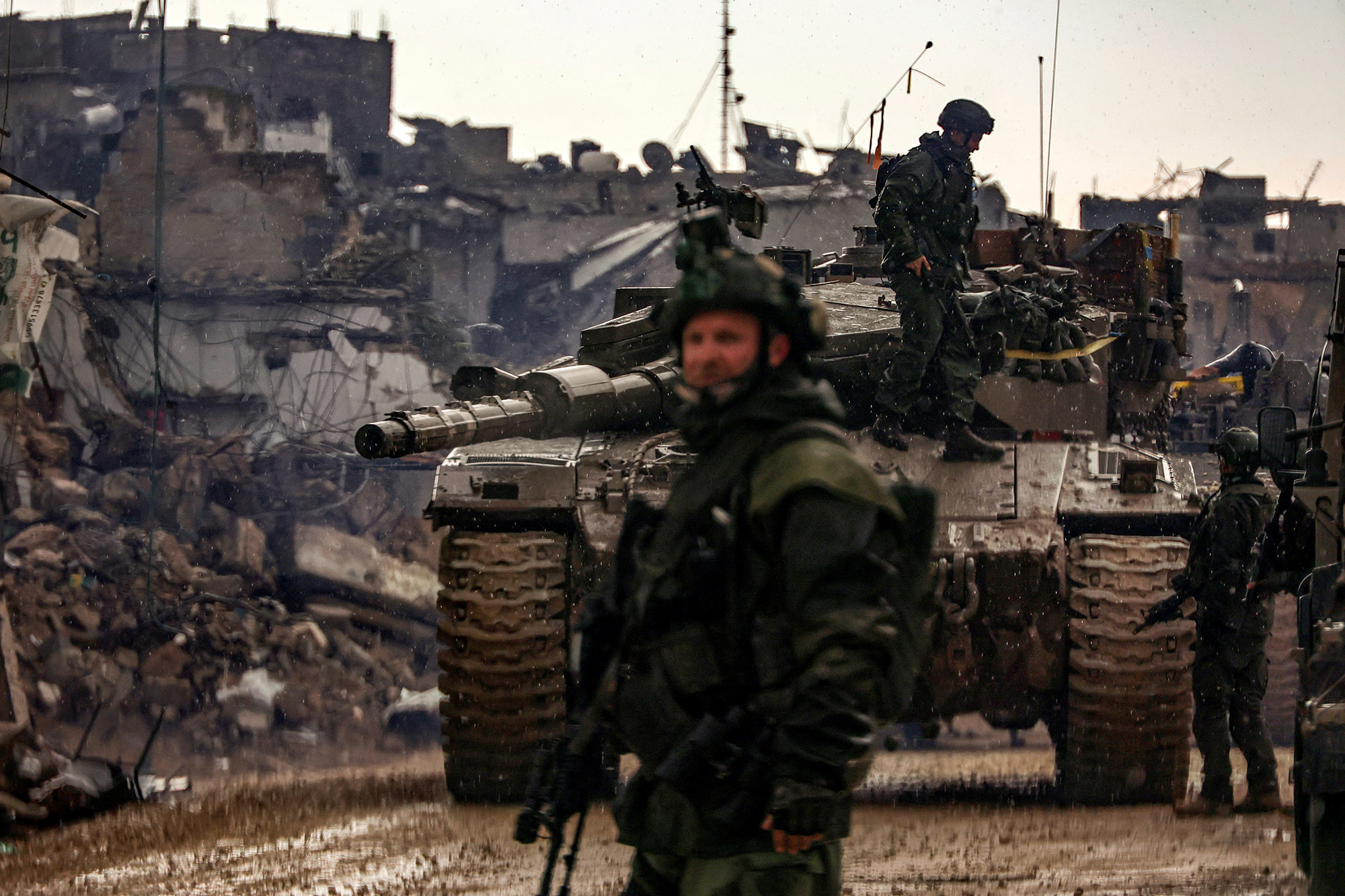
Israeli soldiers in the Gaza Strip (photo: Getty Images)
The operation in Gaza was careful and gradual, as over a million civilians live alongside the terrorists in the Gaza Strip.
Hamas also captured more than 250 Israeli hostages. Some have been freed, others have been killed by Hamas, and there remains hope for the release of the rest.
This issue continues to haunt Israeli society. Both of the stated goals of the Gaza operation — defeating Hamas and freeing the hostages — have proven difficult to achieve. Thus, the main division now is:
- Should Israel continue crushing Hamas, despite the risk to the hostages?
- Or should Israel seek a temporary ceasefire to secure their release, before continuing to dismantle Hamas?
In early September, mass protests erupted across Israel, led by the families of hostages. The immediate trigger was the killing of six Israeli captives by Hamas. Their bodies were found in a tunnel beneath the city of Rafah in southern Gaza. According to representatives of the Israel Defense Forces, the hostages were killed shortly before Israeli soldiers reached them.
The hostage issue also influenced the scale of the Gaza operation. Hamas used them as bargaining chips to pause the conflict and regroup.
"Hostages are their last living shield; they have no other trump cards left. So, they are dragging things out, hoping that new fronts will open, that there will be a major war in Lebanon, or that Iran will launch a broader attack. They’re also hoping for another intifada, an uprising in the West Bank," Khanin said.
The international community also plays a significant role in this situation. Until recently, it seemed that the West, led by the US, was determined to force Israel to reach some peace with Hamas. Above all, the current Democratic administration in the White House does not want a major war in the Middle East, at least not before the US elections, as this would divide the electorate of presidential candidate Kamala Harris.
Thus, the US, Qatar, and Egypt attempted to mediate between Israel and Hamas to secure at least a temporary cessation of Israel's military operations in Gaza. Negotiations were especially intense in August.
However, by early August, the Middle East was again on the brink of a large-scale war. On July 31, in response to another attack, Israel eliminated one of Hezbollah’s leaders, Fuad Shukr, in Beirut, while in Tehran, Hamas political bureau chief Ismail Haniyeh was killed. In retaliation, Iran threatened to strike Israel, although unofficially it conveyed that only a ceasefire in Gaza would prevent such an attack. Yet, the talks once again stalled.
Seizing initiative
With the onset of autumn, Israel seized the initiative, now focusing on Hezbollah, which has been launching massive strikes on Israel from southern Lebanon since last October.
Although Israel had previously carried out airstrikes on Hezbollah’s military targets, these have become more frequent. Israel has succeeded in eliminating Hezbollah’s leadership and paralyzing its communication system by disabling its pagers. A ground operation against Hezbollah is also underway. Additionally, Israel launched a massive strike on the infrastructure of the Houthi rebels in Yemen, another Iranian ally that occasionally attacked Israel with missiles and drones.
"Now, as you can see, Israel’s leadership has decided to return to its previous approach—one it has adhered to for many years—that actions should not be reactive, but proactive. In other words, don’t just respond to what’s happening; initiate the process," Khanin explained.
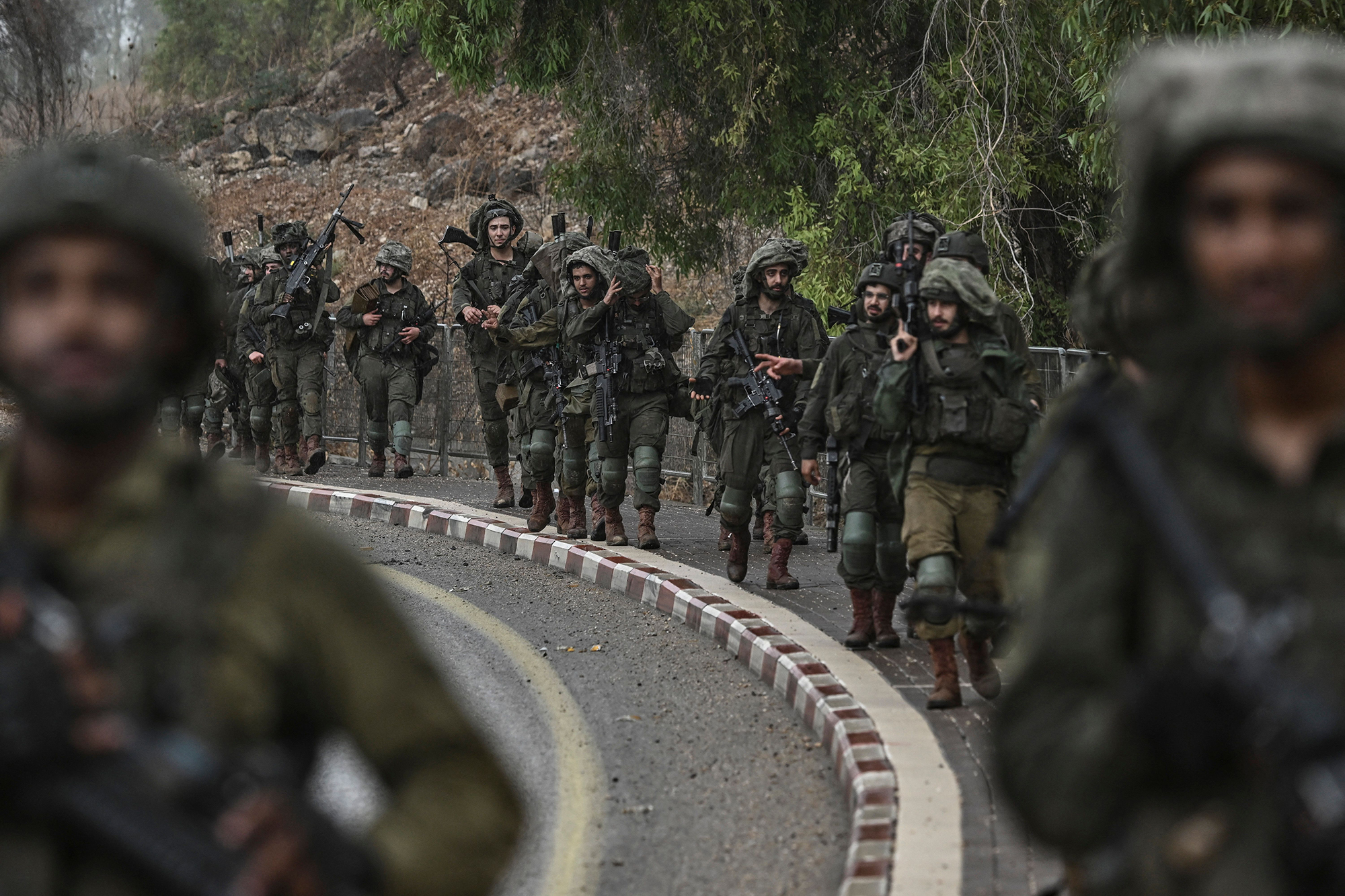
Israeli soldiers on the border with Lebanon (photo: Getty Images)
The preparation for this step has been in the works for a long time, and the operation in southern Lebanon has been meticulously planned. Its goal is to destroy Hezbollah’s missile infrastructure, allowing Israeli refugees to return home, says Levin.
"In 2006, the war was an impulsive reaction. Back then, an Israeli soldier was kidnapped in Gaza, and shortly after, a patrol was ambushed and bodies were taken to the Lebanese border. Now, preparations for the operation in Lebanon have been ongoing throughout the year. The groundwork was laid. It’s no coincidence that the Israeli army recently released data showing that Israeli forces have been entering Lebanese territory for several months now," the expert says.
In this context, Iran, the main sponsor of terrorists, has also escalated its involvement. On the night of October 2, it launched a massive rocket attack on Israel.
Tactics or strategy?
According to Levin, it’s still unclear what the prospects of the operation will be after Hezbollah is defeated – whether Israel plans to withdraw immediately or maintain its presence to prevent future threats. After all, even within Israel, the operation is being called the Third Lebanon War. RBC-Ukraine has extensively covered the outcomes of the previous two.
Following the first Lebanon War, Hezbollah, an even more dangerous organization than the Palestine Liberation Organization, emerged. After the Second Lebanon War, Hezbollah only strengthened, managing to resist Israel and, in turn, attract more resources from Iran and other sponsors.
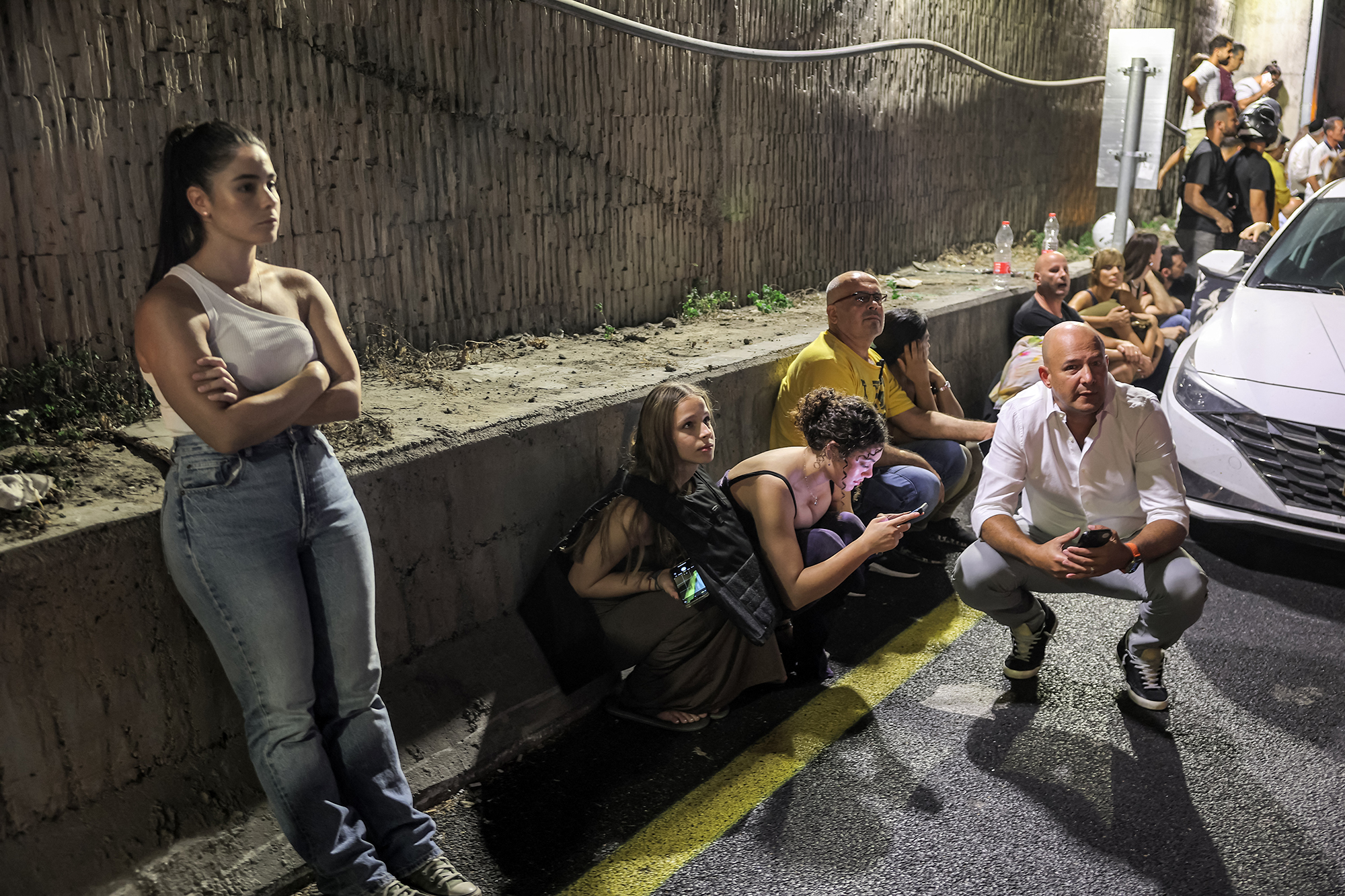
Tel Aviv. People take cover in a shelter during an Iranian missile attack (photo: Getty Images)
There’s also no clarity on the future of the Gaza Strip.
"The Israeli government either doesn’t have an answer or has one that hasn’t been made public yet and is still being discussed with partners," says Iliya Kusa, an analyst at the Ukrainian Institute of the Future.
So, the question arises: is Israel addressing temporary tactical issues, or is it aiming for a strategic victory?
"From the very beginning of this war, it was clear that Benjamin Netanyahu’s political future depends solely on how he ends this war. If he ends it with an image of victory, he could lead the Israeli government for many years to come. If he concludes the war less favorably, the story will take a different turn," said Tzvi Silber, editor-in-chief of Luchsheye Radio (Israel) in an interview with RBC-Ukraine's YouTube channel.
"If we look at Netanyahu’s approval rating, it rose to 37% after successful operations in Lebanon. Of course, this is on a wave of euphoria. But it’s clear that this isn’t permanent; at this stage, the rise is almost 1.5 times. However, his overall approval rating is around 20-25% in society. Global trends show that with such a rating, it’s not advisable to start or end a war. You can only prolong it, which is what’s happening," believes Zeev Khanin.
In the short term, Israel can indeed resolve the issue of Hezbollah and the missile attacks on its territory. The problem with Hamas could also be solved, at least for a few years. If a large-scale war with Iran begins, Israel could also inflict significant damage on its enemy.
However, there remains a powerful Shiite community in Lebanon, which currently serves as a resource base for new fighters. In the Gaza Strip, more than a million Palestinians remain. This raises the question of what Israel will do when the next generation grows up and terrorists start recruiting them. Can Israel find leaders among the Palestinians in Gaza and the Lebanese Shiites who can ensure stability?
Israel's strengths and weaknesses
In protracted wars, victory relies not so much on military might but on the economy and society. This was evident in the course of Russia's war against Ukraine, and it's relevant for Israel as well. Here, the trends are mixed.
On September 28, international credit rating agency Moody’s downgraded Israel’s credit rating by two notches, from A2 to Baa1, and kept a negative outlook. The reason for this decision was the significant increase in geopolitical risk with negative material consequences for Israel’s creditworthiness. This means it will become increasingly difficult for Israel to borrow on global markets. This is the third downgrade since October last year. Moody’s believes that Israel’s economy will be weakened by the conflict more than previously expected.
First, the defense budget has grown. Indirect costs, such as maintaining about 60,000 displaced people who had to leave their homes in northern Israel, have also increased. Additionally, part of the workforce – men and women who were mobilized – has been removed from the economy. Meanwhile, Israel’s tourism revenues, about $5 billion, have almost completely disappeared.
In July, the Bank of Israel (the equivalent of Ukraine's National Bank) reduced its GDP growth forecast for 2024 to 1.5%, down from 2% in April last year. For 2025, the Bank of Israel expects the economy to grow by 4.2%, but this depends on how the situation in the region develops.
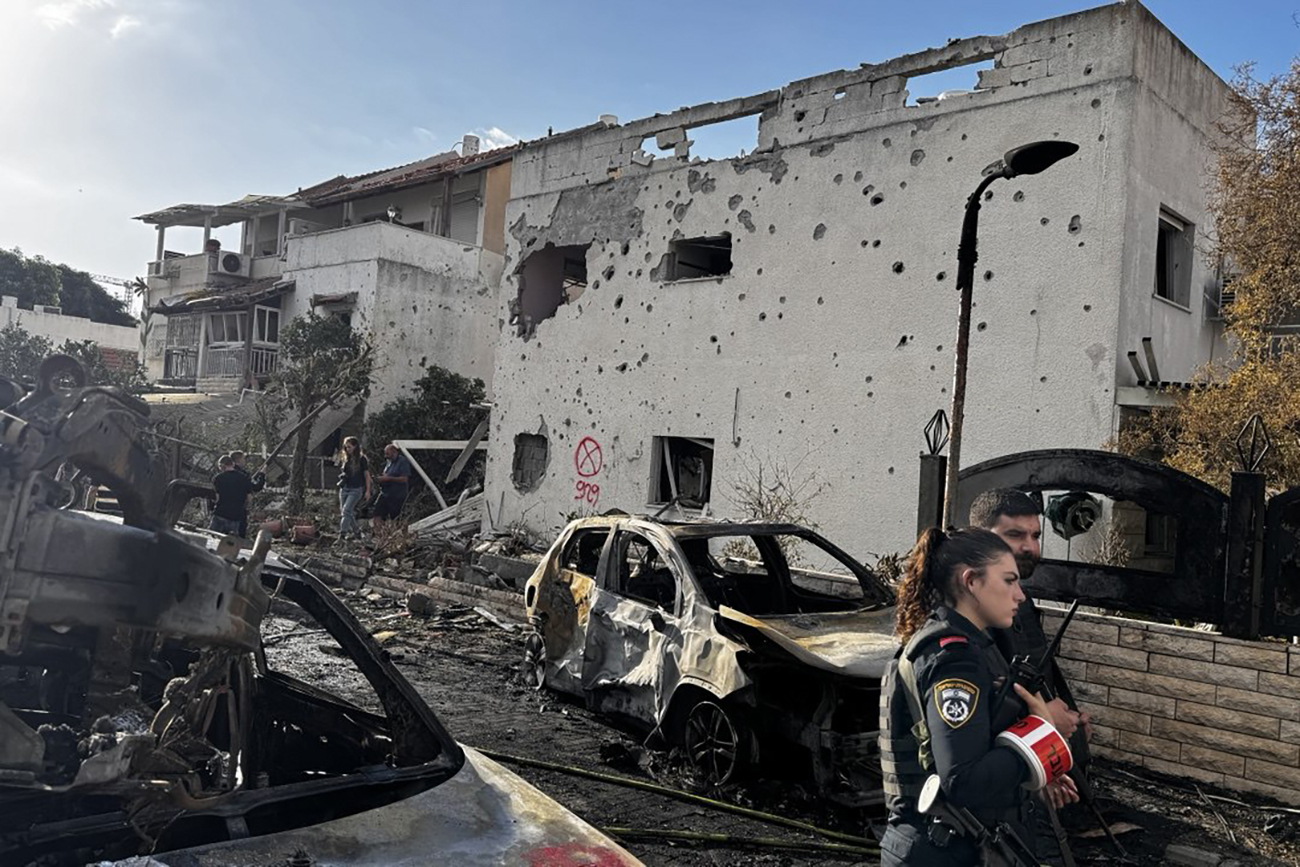
Destroyed buildings in northern Israel (photo: Getty Images)
A poll conducted by research company CI Media Shvuki in July of this year showed that about 45% of Israeli Jews are considering emigrating from Israel. Of course, this is not a record. The situation was worse in 2012 when more than half (54%) were contemplating leaving the country.
Among Jews, 61% said that Israel is the safest place for the Jewish people. In 2012, only 13% felt this way.
However, the primary reason they would leave Israel is economic factors. But compared to 2012, the motivation to leave due to financial difficulties has weakened: only 43% cited financial challenges as the main reason for emigration, compared to 55% in 2012. On the other hand, security concerns were mentioned by nearly a quarter of respondents (24%), three times more than in 2012.
Another troubling aspect for Israel is the attitude of other countries. While support from the US remains intact, the situation is less clear in Europe. Amid Israel’s operation in Gaza, European and American universities have seen mass pro-Palestinian protests led by left-leaning youth. In the EU, some members of the establishment share similar views. Russia has also revealed its anti-Israel stance. These are worrying signs.
On the other hand, to some extent, Israel’s economy is being rescued by the US, which is providing military and financial aid, similar to its support for Ukraine. However, the US is entering a period of political turbulence. Moreover, US presidential candidate Kamala Harris has a somewhat ambiguous stance toward Israel, at the very least sympathizing with the Palestinians. So uncertainty remains here as well.
Nevertheless, the situation Israel finds itself in is not critical. The country is not surrounded by enemies as it was during the wars of 1967 and 1973. Israel remains a technological and military superpower in the region, with much of the global community on its side.
"In this sense, we can say that Israel’s security is ensured not only by the motivation of Israelis and what we call national resilience, not only by military power but also by the fact that this resource hasn’t disappeared. And with the right political decision, it can be used, and then the outcome will be devastating for everyone. This is what recent days have demonstrated," concludes Khanin.
Sources: comments from military expert Yigal Levin, Bar-Ilan University professor Zeev Khanin, Luchsheye Radio editor-in-chief Tzvi Silber, and analyst Iliya Kusa from the Ukrainian Institute of the Future.
